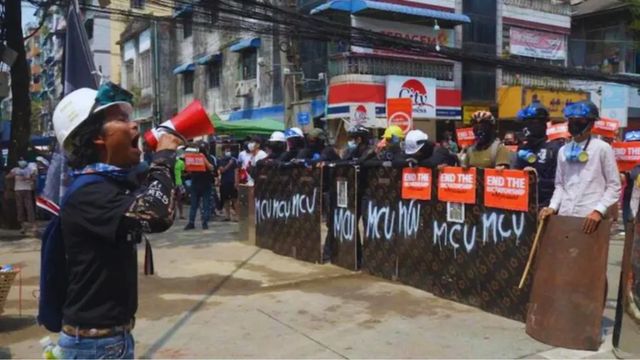 3Photo© thequint.com
3Photo© thequint.comThe Myanmar Coup, Three years on
The erosion of normative commitment to democracy in Myanmar is not a policy unique to the incumbent government. From being one of the most prominent supporters of the 8888 revolution, India gradually warmed up to cooperation with the military rulers. This policy shift is often justified in the name of pragmatism and national interests. Since the coup, India has sought to appease the Junta, even supplying arms after the coup. It’s easy to see today that India put its eggs in the wrong basket and, like the Junta, has gravely underestimated people’s determination for democracy.
India’s faltering in Myanmar is another black mark in its Neighbourhood First policy. Myanmar was supposed to be India’s bridge to Southeast Asia under the Look/Act East policy which also forms the base for New Delhi’s broader approach to the Indo-Pacific. However, the evidence shows, especially in the case of Myanmar, that its decision-making suffers from myopia and adhocism.
The struggle in Myanmar is a neglected catastrophe, one that speaks volumes about the varying value of human lives in international politics and the enduring spirit of a people's desire for democratic governance. The situation demands a recalibrated global response that aligns with the aspirations of Myanmar's citizens. It is a sobering reminder that even in the face of political myopia and international neglect, the quest for freedom and justice cannot be quelled.